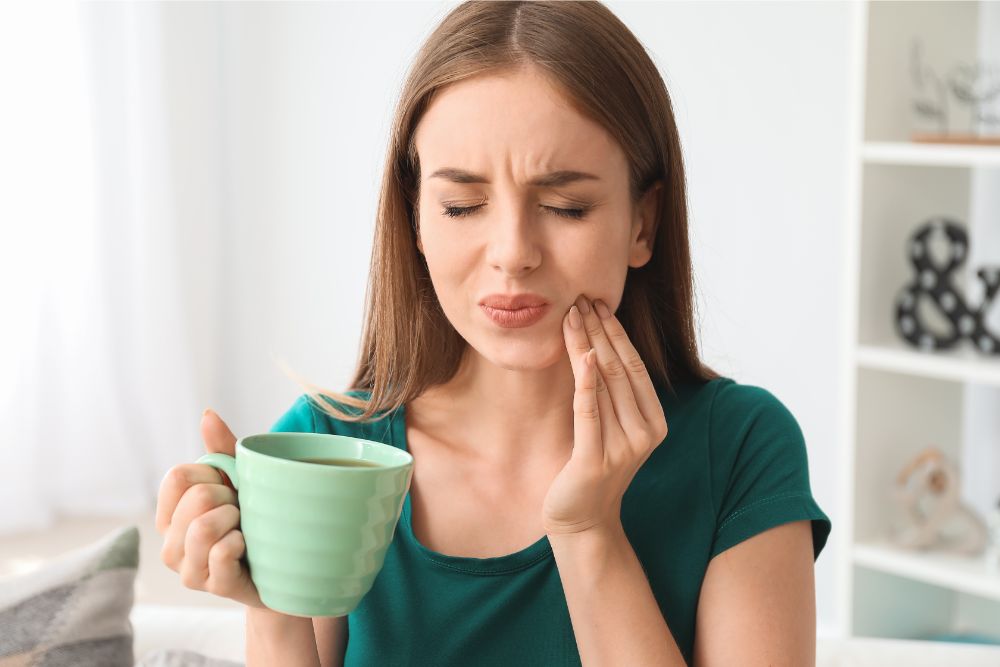Do your teeth hurt when drinking or eating a cold or hot beverage? Are you avoiding activities outdoors or smiling less because the cold air makes your teeth hurt? Then you probably have sensitive teeth.
Tooth sensitivity is a common dental condition. It affects one in eight adults, around 12% of the population in America.
So what causes tooth sensitivity? What are the symptoms? And how can you avoid and treat it?
What are the Symptoms of Sensitive Teeth?
There are various dental problems that you may mistake for sensitive teeth. For example, discomfort in your mouth can mean a lot of things. However, a few indications can tell you it is sensitive teeth.
If you feel discomfort, sensitivity, and mild pain when doing the following, you have sensitive teeth:
- When eating and drinking hot, cold, sugary and acidic food and drinks
- Using any product with alcohol
- Brushing or flossing your teeth
- Breathing in cold air
If the above causes sharp pain and you notice the gums have receded, you should check in with your dentist. You could be dealing with something more sinister.
What causes Sensitive Teeth?
The main cause of sensitive teeth is the exposure of nervous tissues (dentin) below your teeth. The exposure is usually caused by the erosion or cracking of the enamel and receding gums.
The enamel and gums prevent any food, drink or substance from reaching the dentin, which gets irritated when exposed.
The following are the causes of gum recession and enamel breakdown:
- Gum recession due to old age
- Recent dental procedures
- aggressive teeth brushing
- Smoking of tobacco
- Bruxism or clenching/grinding of teeth
- Crack in the teeth
- Acidic foods and drinks
- Some teeth whitening and cleaning products
How do you Avoid or Remedy Sensitive Teeth?
The best way to deal with sensitive teeth is by visiting your dentist. They’ll assess the damage and recommend the best solution that could include:
- Tooth desensitizing Toothpaste and mouthwash
- Mouth guard to deal with bruxism
- Restoration replacement
- Flouride treatments
- Root canal if the situation is dire
You can also avoid sensitive teeth before having the problem or after treatment using the following ways.
- Maintaining good oral hygiene
- Using a soft-bristled toothbrush gently on your teeth
- Reducing intake of sweet and acidic drinks and food
- Avoiding or limiting the use of tobacco products
- Spacing out your teeth whitening procedures
There are many ways of dealing with sensitive teeth. The most responsible thing is to talk to your dentist for more professional insight.
You’ll never fear pulling that stunning smile with the right procedures and habits!


